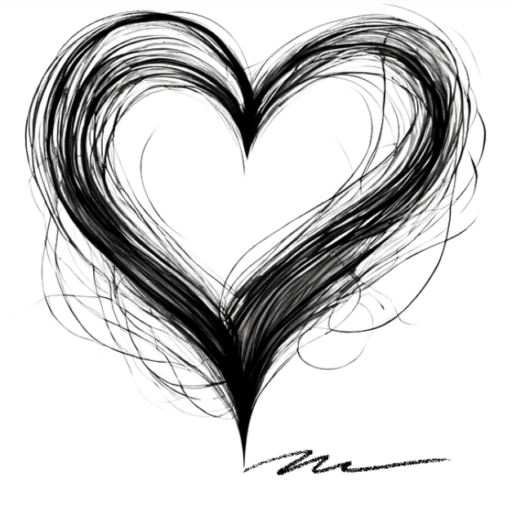The Best Relationship Cocktail Only Needs Two Ingredients: Forgiveness and Repair
The quality of our happiness depends on the quality of our deepest and most meaningful relationships. We are relational creatures who need conscious connections to feel fulfilled in life. This sincere human need makes our most profound relationships, of any kind, cherished treasures. But what is the secret to preserving our most valuable relationships throughout the hardships?
Whether it’s the 30-year friendship with your best friend, the lifelong relationship with your sibling, the one-of-a-kind extended friendship with an ex, the long-term relationship you have with an intimate partner, or the unshakable relationship with your hairdresser of 5 years, who is also your friend with benefits, chances are, these extraordinary lasting relationships have mastered two valuable traits—forgiveness and repair.
Just like a yummy cocktail, forgiving and repairing mistakes takes the edge off of striving for the perfect relationship and helps us feel good about putting the pieces back together after the drama. This relationship cocktail leaves a sweet taste in our mouths because we are willing to acknowledge the bitter feelings we’ve been holding on to and cut the cord.
Let’s face it, when we don’t forgive others, we choose to see that person as one-dimensional. This means we let their mistakes define them and we end up holding on to the pain they’ve caused. This will end up taking emotional and physical space in our bodies that will eventually be too much to carry and manifest itself in ugly ways.
Forgiving and repairing our relationships are two of the highest acts of love that we can offer to others (and to ourselves) because it shows the other person that you love them so much, you are willing to see beyond the negative experience or emotion and embrace the multi-faceted person.
When navigating relationships, it is important to always remember that everyone has their “baggage” which makes the process of forgiving and repairing unique for every dynamic. We are all on our individual paths to healing our past, and this has a huge influence on how we approach relationships and practice forgiveness and repairing.
Forgiving others releases the pressure of having to see eye to eye with our loved ones all the time. Asking for forgiveness also allows us to accept responsibility for our behavior which saves us from having to pretend to be the “perfect” partner, or play any games.
When repairing the relationship, each person takes action to show the other that they still matter to one another. Each person takes initiative to heal the damage done. That’s right! Each person involved, not only the culprit, has to participate in this part of the healing process. Of course, this will look different for every relationship, but the bottom line is that everyone, to some degree, continues to show each other that they want to keep on loving together and work out the kinks.
In other words, moving forward in the relationship will look different depending on what side of the mistake you are on. For example, if you are the one asking for forgiveness, your role in the repair process could be to move forward with the intention of not repeating your mistake. If you are the person who was on the receiving end of the damage, your role could focus on not shaming the person but to move forward to do your part to nourish the relationship.
Just like every delicious cocktail needs a delicate garnish, so does practicing forgiveness and repairing. The forgiveness and repair cocktail is perfectly paired with a little slice of communication. Dedicating some time to discuss what it will take to make things better will eliminate any guessing games and assumptions.
Even if you don’t know how to begin repairing, be honest and say, “I don’t know how to repair this, let’s figure it out together,” and remain open to the process! Side note—when drama unfolds, it’s highly likely that all people involved may need some level of forgiveness!
To ease the act of forgiving and repairing, here are some gentle reminders:
Yes, it can take some time to enter into a space of forgiving and repairing.
Yes, you can forgive and not forget, but you must repair if you are going to continue in the relationship.
Yes, you can forgive and repair by creating new boundaries with the person.
Yes, you can forgive and accept that the outcome of repairing means the relationship will be different.
Yes, you can forgive someone you’ve initially chosen not to forgive, and choose not to repair things if you’ve ended the relationship.
Just as it takes a little grace to make a delicious cocktail, your relationship requires the same. Approaching every aspect of the situation at hand with grace will create a healing atmosphere that nourishes vulnerability, compassion, a deeper awareness, and understanding.
Ultimately, you are the only one who can determine what unacceptable behavior deserves forgiveness and how many times, and if you are the one asking for forgiveness (we all are at one point or another), you are the only one who can make the effort to not repeat the same mistakes.
Forgiveness is not accepting poor behavior and repairing is not the act of enabling, but they are the greatest acts of mastering a kind of love that releases the tight grip of the need to punish, and instead, restores the most meaningful relationships that fill our cups—this is what love does, and this is what our greatest relationships deserve. Cheers!

Marissa is a lifelong writer, relationship coach, and mental health professional. She loves writing and talking about wellness, relationships, fiction, poetry, and spirituality. She believes that balancing emotional, mental, physical, and spiritual wellbeing is the foundational truth to freedom and growth in love and life.

